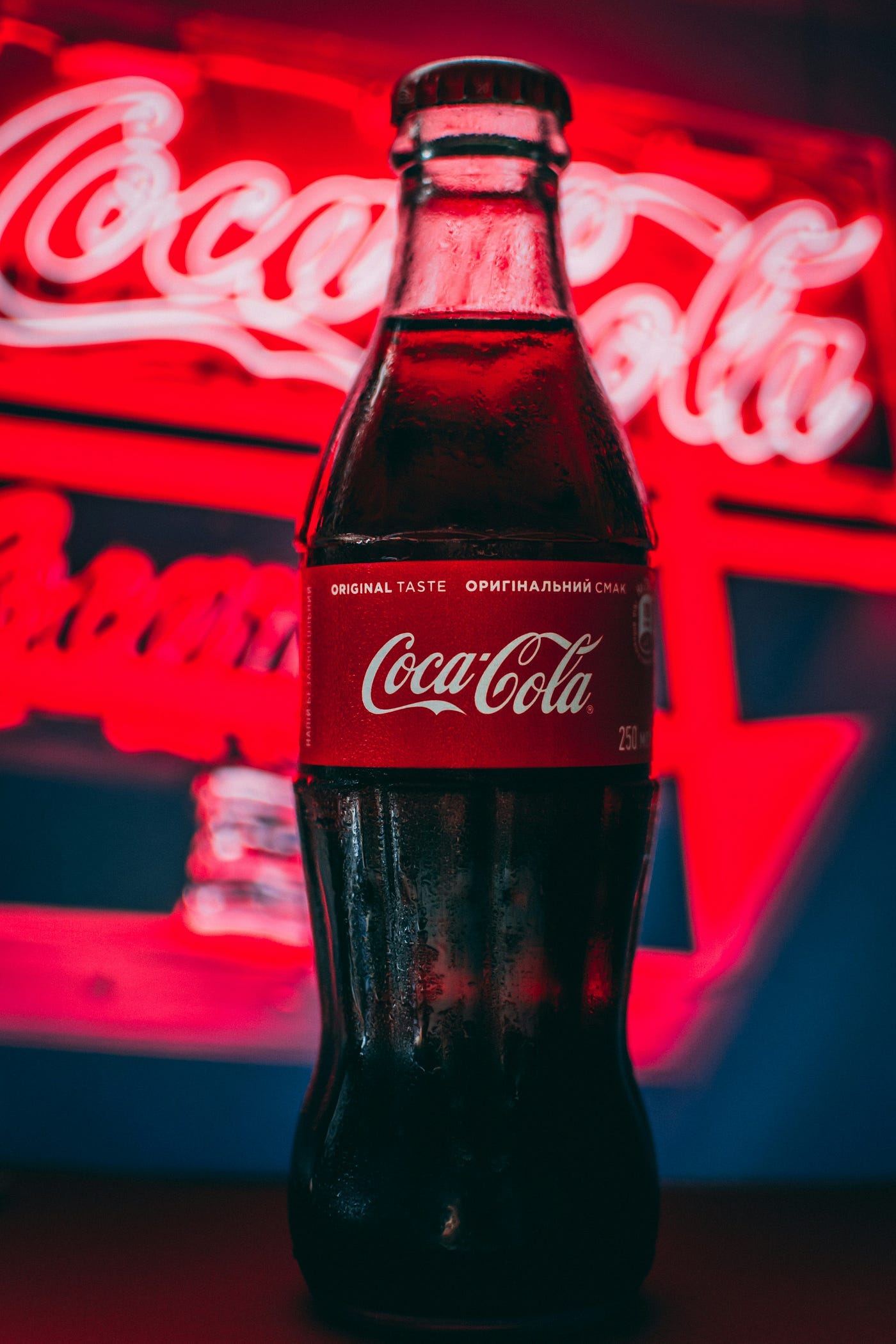How Coca-Cola Boosts Sales By Using AWS Lambda Serverless Functions
The story of how the beverage company uses serverless functions in their drinks machine to boost sales and offer amazing customer experiences.
Did you know that Coca-Cola has 52 thousand “freestyle” drink dispensers across the U.S. alone?
Did you know that all of them are using serverless services from AWS to enable a unique, touchless experience?
Coca-Cola Freestyle machines are beverage dispensers that offer customers a self-serve experience without ever touching the machine.
Customers snap a picture of the QR code on the machine and see the list of beverages right on their phones.
By tapping the drink they desire, the machine dispenses their drink of choice within single-digit millisecond response times [1].
That is seriously next level.
With these freestyle dispensers, you don’t wait one or two seconds to get your drink; you get it immediately and as fast as if you pressed the button yourself.
How COVID-19 inspired Coca-Cola Freestyle
During the pandemic in 2020, Coca-Cola encountered a real product problem.
Many consumers were afraid of touching surfaces that were touched by many other people, understandably so.
To solve this issue, Coca-Cola came up with a touchless solution. However, most solutions had significant latency which caused some delay when communicating between a customer’s phone and the beverage dispenser.
So how did Coca-Cola surmount this issue?
The answer lies with Serverless services from AWS. [2]
AWS API Gateway & Lambda
Why were AWS serverless offerings crucial to Coca-Cola’s use case?
Could they have gone with other solutions?
Well, the fact is that API Gateway and Lambda offer single-digit millisecond latencies — which is near real-time response speed.
Coca-Cola’s freestyle dispensers could not afford a response time any slower than that since that would cause drinks to overflow and lead to waste.
This would also inevitably impact the sales and customer experience.
“Low latency is essential to the user experience, which is why we’re committed to a serverless solution on AWS” — Michael Connor, Coca-Cola. [1]
Coca-Cola started by creating a prototype to validate the serverless idea.
Going serverless allowed them to build a prototype in a week instead of months.
The team at Coca-Cola went on AWS, set up the serverless infrastructure, built the entire front-end application, and were able to test it in the lab all in a week.
Lambda allowed them to run the serverless code that runs the actual transactions, and API Gateway enabled them to have a serverless API that offered lightning-fast responses.
To launch a similar setup yourself would take you minutes as well. This is the power of serverless — and in business speed is the ultimate currency.
You can write a few Lambda functions in a few minutes, not days. You can then create and deploy a serverless API that interacts with your front-end and server code.
Once Coca-Cola tested the prototype they found that not only did it work and work fast, but “it was a magical experience to not have to touch the dispenser” to get your drink.
Conclusion
We can learn a very valuable lesson from Coca-Cola’s initiative.
Customer needs and external events are always evolving and thus adapting to these elements is crucial if you are to provide a stellar customer experience.
Optimizing your product and allowing it to evolve and innovate, amid unforeseen complications is how you push through and succeed in providing a product that solves customer problems and ultimately drives sales.
Finally, use serverless — it is powerful, it is fast and it allows for boundless innovation, and will ultimately drive up your product’s success.
👋 My name is Uriel Bitton and I’m committed to helping you master AWS, Cloud Computing, and Serverless development. ☁️
🚀 If you want to learn how to build enterprise-level, scalable, and resilient applications, follow me and subscribe.
🥰 You can also follow my journey on:
See you in the next one!




